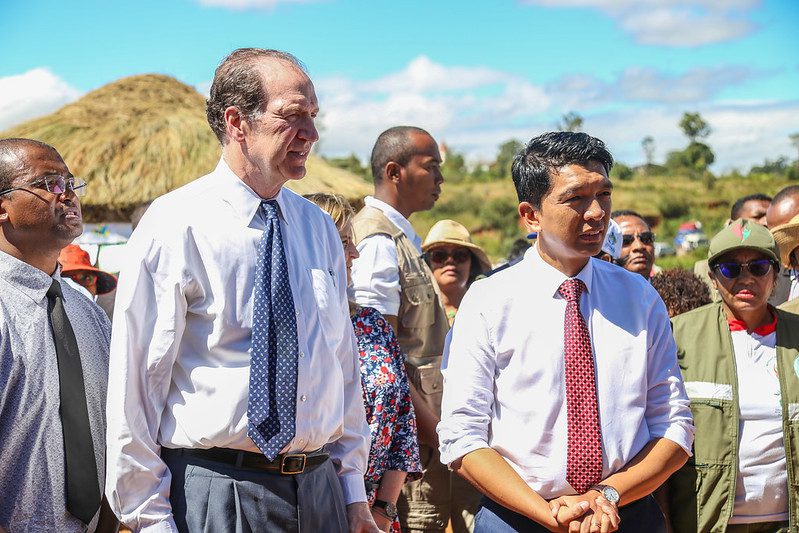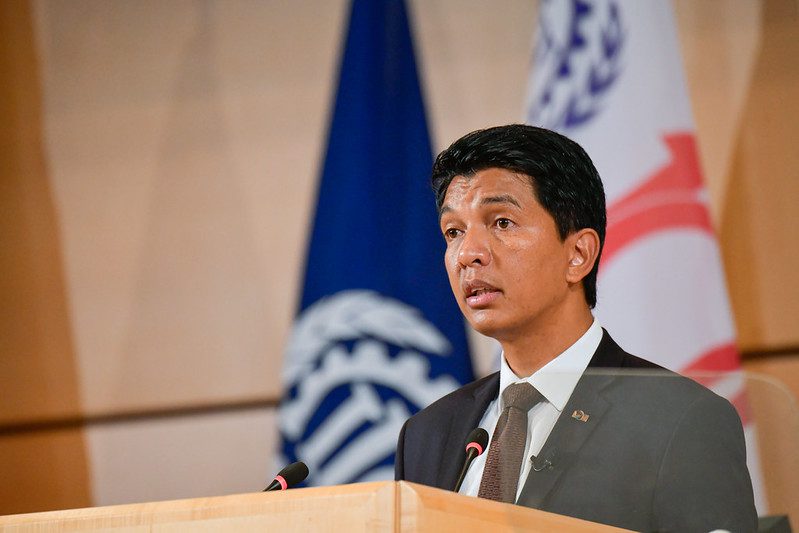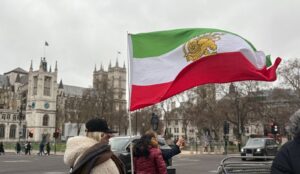Madagascar’s President has announced the dissolution of his government after days of youth-led protests that have left at least 22 people dead.
The demonstrations erupted on Thursday in response to worsening power and water shortages, alongside deepening frustration over poverty. Initially peaceful, the marches in the capital Antananarivo quickly descended into violent clashes with police, looting and arson.
Security forces used rubber bullets and teargas to disperse crowds, but the unrest continued across the weekend. Organisers, who mobilised support through social media, said they had been inspired by youth-led movements in Kenya, Nepal and Morocco. Demonstrators even adopted a protest flag first used in Nepal earlier this month, when violent demonstrations forced the prime minister there to resign.
Although authorities banned the protests on Wednesday and deployed heavy patrols across the capital, thousands still turned out in defiance.
Frustration over poverty and failing services reaches boiling point
Madagascar remains one of the poorest countries in the world. According to the World Bank, more than 75% of its 28 million people live below the international poverty line, with many struggling daily to secure food, clean water and healthcare. Little progress has been made in two decades: in 2001, poverty stood at 69%, and as recently as 2022 the country ranked 173rd out of 191 on the UN Human Development Index.
Power cuts and water shortages are not new to the island, but their increasing frequency and duration have severely disrupted daily life. Some homes and businesses have been left without electricity for more than 12 hours at a time, intensifying frustrations that have now spilled into the streets.
Protests spiral out of control
What began as a peaceful march in Antananarivo soon turned chaotic. Protesters set up barricades with rocks and burning tyres, and reports of looting spread across the city, with shops, banks and appliance stores targeted.
The homes of politicians close to President Andry Rajoelina were also attacked. By the weekend, the unrest had spread to at least eight other cities, with buildings torched and looted as authorities struggled to restore order.

Image: World Bank President David Malpass and President of Madagascar Andry Rajoelina – World Bank / Sarah Farhat
The government’s handling of both the energy crisis and the protests themselves has drawn sharp criticism, amid accusations of excessive force and heavy-handed tactics.
Police Chief Angelo Ravelonarivo announced that a nighttime curfew would be implemented from 7pm to 5am on Friday until calm was restored. According to the Police Chief, this move was designed to better protect the population. It had little effect as protests continued throughout the weekend.
The protest movement was driven mostly by the youth, gaining traction on social media platforms, mainly Facebook. Many protesters turned out at the regional offices of the national water and electricity company, which are viewed by many as the root of the country’s problems.
Protesters carried placards displaying messages “Water and Electricity are basic human needs,” “Let us speak out,” “Malagasy people, wake up”.
The movement follows similar youth-led protests in Kenya, Indonesia and Nepal with some individuals even carrying black flags featuring a one piece skull logo, used in Nepal in recent weeks, this time it featured a traditional Malagasy hat.
UN condemns heavy-handed crackdown
The UN has criticised the government’s response, reporting that at least 22 people have been killed and more than 100 injured. Victims include both demonstrators and bystanders, while looting has been attributed to criminal groups not directly linked to the protest movement.
Security forces have been accused of beating protesters, carrying out arbitrary arrests, firing teargas and, in some cases, using live ammunition. UN Human Rights Chief Volker Türk urged Malagasy authorities to halt the “unnecessary and disproportionate use of force” and to release those unlawfully detained. He also called for transparent investigations and stressed that international law permits the use of firearms only when “strictly necessary to protect life or prevent serious injury”.
Madagascar’s foreign ministry rejected the UN’s figures, dismissing them as “rumours and misinformation”.
President Rajoelina dissolves government
In a televised address, President Rajoelina said: “I understand the anger, the sadness, and the difficulties caused by power cuts and water supply problems.” He confirmed he had dismissed the prime minister and cabinet, with interim ministers remaining in post until a new government is appointed in the coming days.
The President pledged to “find solutions” to the country’s crises and expressed readiness to meet the young activists leading the demonstrations. However, his announcement has so far failed to quell the unrest, with organisers already calling for another mass rally in the capital on Tuesday morning.
Featured Image via Crozet / Pouteau – ILO




